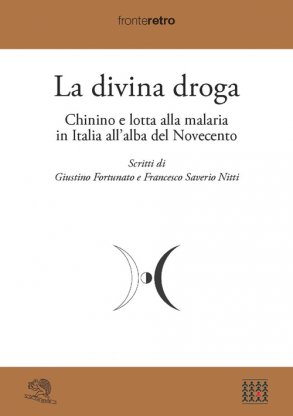
The Divine Drug: Quinine and the Fight Against Malaria in Italia at the Beginning of the Twentieth Century
Written by Giustino Fortunato and Francesco Saverio Nitti
Through the end of the 19th century, the effects of malaria spread across a third of Italy and claimed thousands of victims every year, preventing people from carrying on with everyday life. The situation was particularly critical in the Center and South, given that the presence of latifundium created a severe economic backwardness.
While brilliant scientists were discovering the true causes of the disease, politicians in the parliaments of the Kingdom of Italy debated how to contain it. Thus was born the legislation which, over the course of several years and thanks to the free distribution of quinine (the “divine drug”), turned events around and brought about a gradual improvement in Italian public health.
The work of Fortunato and Nitti are not only an account of a “forgotten era” in Italian history, but are also a channel through which we can rediscover the beauty and vitality of the generosity of those who gave their resources and time to the fight against malaria.
Authors
Giustino Fortunato
(Rionero in Vulture, Potenza, 1848-Naples, 1932), politician, historian, and expert on the “Southern Question”. He studied the problems relevant to the social and economic crisis of the South following Italian unification. As a parlamentarian, he dedicated himself above all to the improvement of infrastructure, to literacy, and to public health in the South by supporting development policies and pharmaceutical disease prevention. His philosophy greatly influenced many experts on the South of Italy, and the political-cultural paradigm of the era. His works include: Il Mezzogiorno e lo Stato italiano. Discorsi politici (1880-1910); Pagine e ricordi parlamentari; Il castello di Lagopesole; La badia di Monticchio.
Francesco Saverio Nitti
(Melfi, Potenza, 1868-Rome, 1953) economist, writer, expert on the “Southern Question”, he was furthermore Council President from 1919-1920 and several times served as its Minister. As an anti-fascist, he was forced into exile in 1923 and lived in Paris for 20 years. In 1943 he was arrested by the Gestapo and deported to Austria. In 1945, he returned to Italy to restart his political career. His works include: L’Europa senza pace, La decadenza dell’Europa e La tragedia dell’Europa; La Democrazia; Scritti sulla questione meridionale.





